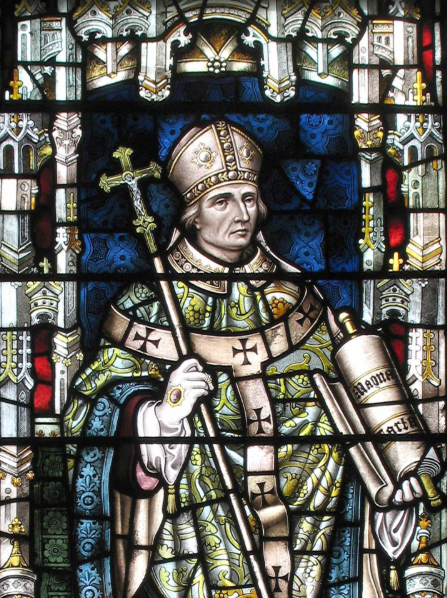Dr. David Kee, assistant professor of business
Originally prepared for the Colloquium of the Liberal Arts
 As with all great achievements, it’s important to understand the individuals who created, launched and propagated the greatest moments in history. The Magna Carta charter, which was finalized 800 years ago in 1225, was one of those moments. For the first time, individual liberty and legal rights were crafted in a concise document, which has guided advanced societies ever since. The architect, mediator and spiritual guide of the Magna Carta was Stephen Langton, the Archbishop of Canterbury.
As with all great achievements, it’s important to understand the individuals who created, launched and propagated the greatest moments in history. The Magna Carta charter, which was finalized 800 years ago in 1225, was one of those moments. For the first time, individual liberty and legal rights were crafted in a concise document, which has guided advanced societies ever since. The architect, mediator and spiritual guide of the Magna Carta was Stephen Langton, the Archbishop of Canterbury.
One of three sons of a Lincolnshire landowner, Langton trained at the University of Paris, where he later became one of the most respected theological scholars of the time. We have Langton to thank for the chapters we have in our Bibles. When in 1207 the Pope made him Archbishop of Canterbury, he had several run-ins with King John, and, because he sided with the land barons in property disputes, he was exiled. When he returned under Henry III, he helped to finalize the drafting of the Magna Carta. He seems to remain partially exiled even in death as his resting place in Canterbury Cathedral is surprisingly hard to find, with half of his tomb inside the cathedral and the other half outside.
Langton spent seven years living among the Cistercian monks in Puligny near Auxerre in central France. The Cistercians are a branch of the Benedictine order started in 1098 by Stephen Harding, later known as St. Stephen. They criticized the Benedictines for living lazy, indulgent and unproductive lives. Therefore, they imposed hard work, innovation and thrift as their main practices in addition to spiritual meditation. The Cistercians became the most prosperous monastic order and were known for their many technological advancements, particularly in agriculture.
Not only did the Cistercians influence Stephen Langton and the writing of the Magna Carta charter, but research indicates they also influenced many of the Protestant reformers, specifically their work ethic. Sociologist Max Weber, famously known for his work on the Protestant Ethic and the Spirit of Capitalism in 1905, indirectly referred to this when discussing the source of the virtues of hard work, frugality, self-discipline, generosity and calling Protestant leaders such as Martin Luther and especially John Calvin preached vehemently.
Weber was attempting to answer one of the big questions in the history of mankind: what happened to cause the exponential growth of wealth and prosperity beginning in the 18th century, when humanity had been forever sick and poor? His research pointed to the Protestant work ethic and attributed it to the development of capitalism, free markets and enterprise. He went back to the reformers, the Puritans and the ascetic practices of inner-worldly merchants to explain how the western world developed so much and so fast — an expansion we still experience today. Had he pushed even further back, contemporary scholars are now saying, he would have pointed to the Cistercians and their influence on the sealing of the Magna Carta through Stephen Langton.
Now somewhat forgotten in the annals of history, Langton’s influence deserves another look and further recognition for his contribution to the betterment of the society in which we live.